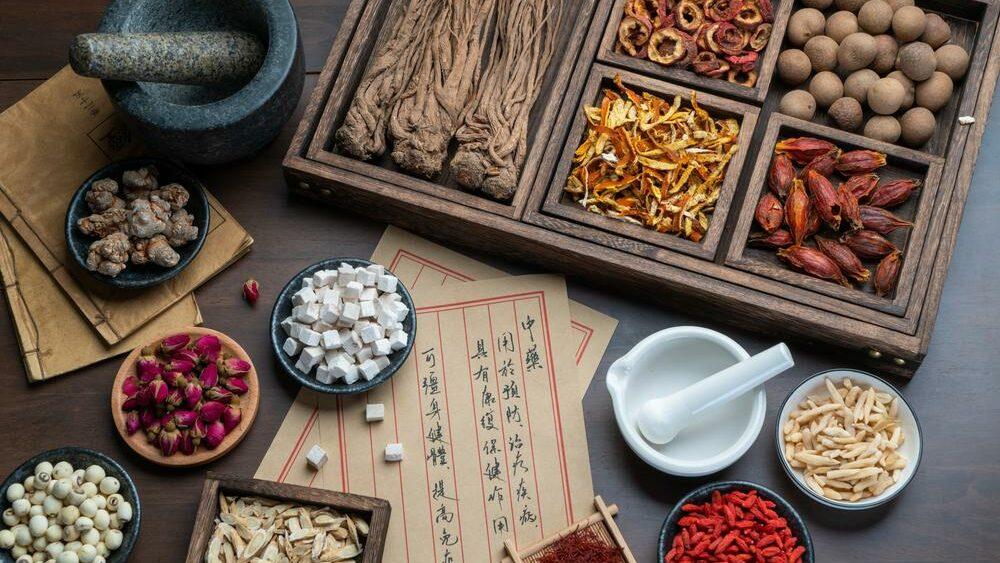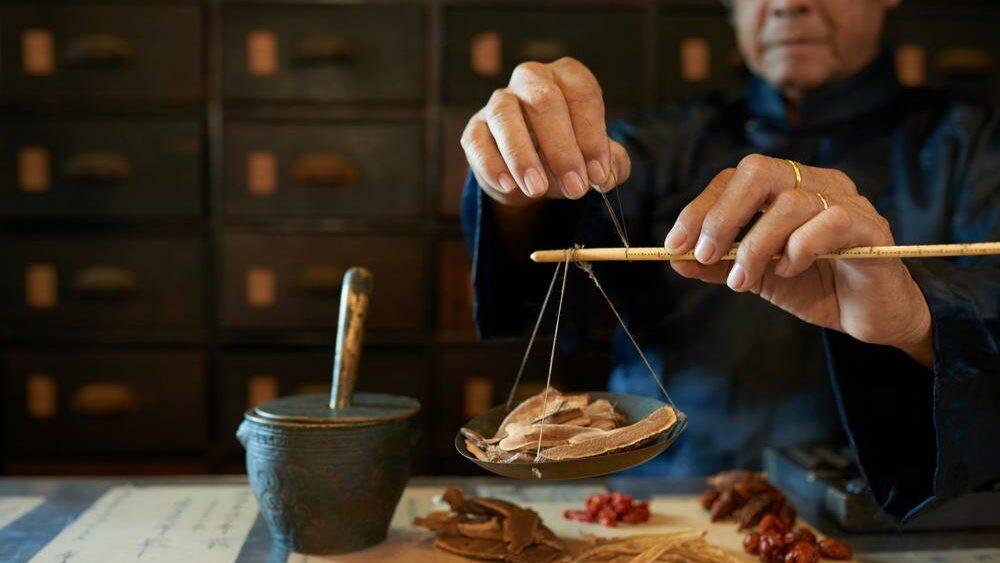Many people are now considering holistic treatments that combine modern medicine and traditional remedies. This prompts them to look into ancient practices that have existed in the community since the times of our ancestors such as Traditional Chinese Medicine or TCM.
The way TCM treats patients primarily places greater emphasis on overall health, which distinguishes it from western medicine. However, because of its specialised practices, many people continue to have questions about this old practice.

To provide some background on TCM, we’ve invited Associate Prof Dr. Lim Ren Jye, Medical Director cum TCM Consultant Physician from Sunway TCM Centre Malaysia to share some insights. We hope this coverage will help you make informed choices in your health journey.
WHAT IS TRADITIONAL CHINESE MEDICINE?
Dr. Lim Ren Jye: Traditional Chinese Medicine (also known as TCM) is a medical system originating from China that has been used for thousands of years to prevent, diagnose, and treat disease. It aims to restore the body’s balance and harmony between the natural opposing forces of Yin and Yang, which is based on the belief that Qi flows along the meridians in the body and keeps the body and the person’s spiritual, emotional, mental, and physical health in balance.
A patient who has had radiotherapy for nasopharyngeal cancer may experience xerostomia (dry mouth) which badly affects their quality of life. In modern medicine, it is a challenging condition as we have limited options other than artificial saliva. With TCM, herbal medicine helps to alleviate the condition by increasing saliva secretion. We published this study when I was at the National Cancer Institute.
Recently, more and more established areas are being found where TCM and modern medicine are completing each other, for example, post-stroke rehabilitation, pre and post-natal treatments, integrative TCM with fertility treatments, mental health issues, and more.
TCM IS A MEDICAL SYSTEM ORIGINATING FROM CHINA THAT HAS BEEN USED FOR THOUSANDS OF YEARS TO PREVENT, DIAGNOSE, AND TREAT DISEASE.
WHAT ARE THE PRACTICES THAT FALL UNDER THE CATEGORY OF TRADITIONAL CHINESE MEDICINE?
Dr. Lim: Many practices include:
- Herbal medicine
- Acupuncture/Moxibustion/Cupping/Guasha
- Nutrition therapy
- Therapeutic Manipulation
- Mind-body-soul intervention (Eg: Qigong, Ba Duan Jing, and TaiChi)

HOW EFFECTIVE IS TRADITIONAL CHINESE MEDICINE?
Dr. Lim: It is often known to have pseudoscience elements due to its diagnostic categories that do not correspond to the current scientific understanding of biology. However, increasing value-based studies and evidence-based studies have shown evidence for the efficacy and safety of TCM.
WHO SHOULD USE TRADITIONAL CHINESE MEDICINE?
Dr. Lim: Generally, anyone can opt to consult a registered TCM practitioner, as TCM is a holistic approach from prevention and treatment to the maintenance of health. Other than treating the symptoms and TCM syndromes, TCM also focuses on prevention, in cases when someone is at the intermediate state between chronic disease and health, we call it suboptimal health status (SHS), a person may have uncomfortable symptoms but without diagnosable illness.
GENERALLY, ANYONE CAN OPT TO CONSULT A REGISTERED TCM PRACTITIONER, AS TCM IS A HOLISTIC APPROACH FROM PREVENTION AND TREATMENT TO THE MAINTENANCE OF HEALTH.

WHO SHOULD AVOID TRADITIONAL CHINESE MEDICINE?
Dr. Lim: Different practices have their contraindications. For example, those who are allergic to herbal medicine are not advised to continue the prescription. Also, those who are taking blood thinners, have pacemakers, are allergic to metal, trypanophobia (extreme fear of needles) should avoid using acupuncture or electro-acupuncture treatment.

CAN TRADITIONAL CHINESE MEDICINE BE USED AS A REPLACEMENT FOR CONVENTIONAL OR ALLOPATHIC TREATMENTS?
Dr. Lim: Yes and no in this case. In general, it is best to use as a complementary or adjunct treatment for conventional treatments as it does work well in many areas as an integrative method. Usually, in this case, it has been well agreed by all parties on the multidisciplinary approach.
In other cases, upon discussion with medical officers, due to possible age, medical conditions, constraints, or patients with no options for treatments, TCM can play a major role in monitoring the progress.
For example, some cancer patients with no options for treatments left but TCM, they are doing well in our centre, with close monitoring of the progress.
When there are conditions like heart attack, trauma, bleeding gastric ulcer, or other acute and urgent cases, I will request my patients to go to the emergency department for immediate allopathic treatment.
Instead of saying they are alternatives or replacing each other in the healthcare world, they are, in fact, actually complementing each other with their strength whether the patient is with allopathic or TCM.
ARE THERE ANY SAFETY CONCERNS ONE SHOULD TAKE NOTE OF BEFORE GOING FOR TRADITIONAL CHINESE MEDICINE?
Dr. Lim: One should understand his or her own medical and medication history before going for Traditional Chinese Medicine. When choosing TCM that would help with your condition, it is best to seek a registered practitioner and TCM centre which focuses highly on effectiveness, quality, and safety.

Do remember to alert the practitioner of your underlying medical condition and medication history. For instance, if you are taking a blood thinner, had surgery, have liver or kidney impairment and so on. With this, your practitioner is able to understand further and provide you with safe options and avoid any herb-drug interactions.
MY ADVICE IS IF YOU ARE INDECISIVE ABOUT THE AVAILABLE OPTIONS, SEEK SOMEONE WHO UNDERSTANDS BOTH TREATMENTS TO GIVE YOU A SECOND OPINION OR SEEK YOUR PRIMARY HEALTHCARE PROVIDER ON THE ADVICE.
HOW CAN SOMEONE LOCATE A TRUSTWORTHY TRADITIONAL CHINESE MEDICINE PRACTITIONER?
Dr. Lim: Malaysia is one of the very few countries to regulate diverse practices and practitioners of TCM. The enforcement of The Traditional and Complementary Medicine (T&CM) Act 2016 provides a good establishment for the council to govern the practice and regulate the practitioners in Malaysia. This will allow Malaysians to recognise and get a consultation from registered practitioners and receive a regulated practice.
WHAT ARE YOUR RECOMMENDATIONS OR ADVICE FOR MALAYSIANS WHO ARE CONSIDERING TCM AND MODERN MEDICINE FOR THE TREATMENT OF THEIR AILMENTS?
Dr. Lim: Both medicines have their strength, and they can complement each other if it is directed properly by registered healthcare personnel, especially experts who understand both worlds. No doubt, both medicines can provide synergistic effects and give a better outcome if it is prescribed properly. However, they should not be replacing each other unless agreed upon by all parties. Evidence-based and value-based findings are important in ensuring effectiveness, quality, and safety in terms of considering both treatments.
In some cases, TCM should not be an alternative to delay modern medicine. For instance, in cancer management, there are many treatments available with good outcomes especially when it is treated early. On the other hand, some established outcomes such as TCM stroke rehabilitation should be started as soon as the western treatments are done. A combination of acupuncture and physiotherapy does make difference in terms of recovery.
My advice is if you are indecisive about the available options, seek someone who understands both treatments to give you a second opinion or seek your primary healthcare provider on the advice.














